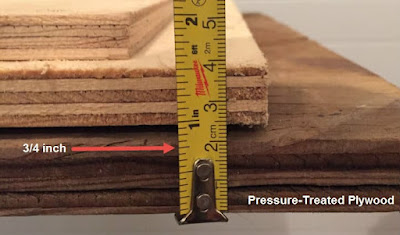Finding the Perfect Floorboard Thickness for Your Space: Tips and Recommendations
When choosing new flooring for your home, one important factor to consider that is how thick is a floorboard? The thickness of a floorboard can impact the durability, stability, and appearance of your flooring. In this article, we'll explore how thick floorboards typically are and what to consider when choosing the right thickness for your home.
Standard Thicknesses for Floorboards
Floorboards come in a variety of thicknesses, depending on the type of flooring and the manufacturer. In general, the most common thicknesses for floorboards are:
3/8 inch (9.5mm)
1/2 inch (12.7mm)
5/8 inch (15.9mm)
3/4 inch (19.1mm)
Of course, these are just general guidelines, and some manufacturers may offer other thicknesses as well. When selecting flooring, it's important to check the manufacturer's specifications to ensure you are getting the right thickness for your needs.
How Thick is a Floorboard
What Thickness is Best for Your Home?
The thickness of the floorboards you choose will depend on a variety of factors, including the type of flooring, the subfloor, and your personal preferences.
For example, if you are installing a floating floor, which is not attached to the subfloor, you may want to choose thicker floorboards for added stability. Thicker boards are also typically more durable and can withstand more wear and tear over time.
If you have a concrete subfloor, you may want to choose a thinner floorboard to ensure that the flooring is level and stable. Thicker boards may not lay flat on a concrete subfloor, which can lead to an uneven surface.
In addition to practical considerations, the thickness of your floorboards can also impact the appearance of your flooring. Thicker boards can give a more substantial, luxurious feel to a room, while thinner boards may be more subtle and understated.
Ultimately, the best thickness for your flooring will depend on your unique needs and preferences. Be sure to consult with a flooring professional to determine the ideal thickness for your home.
Conclusion
Floorboard thickness is an important consideration when choosing new flooring for your home. While there are standard thicknesses for floorboards, the right thickness for your needs will depend on a variety of factors, including the type of flooring, the subfloor, and your personal preferences. By taking the time to choose the right thickness, you can ensure that your flooring is durable, stable, and visually appealing for years to come.




Comments
Post a Comment